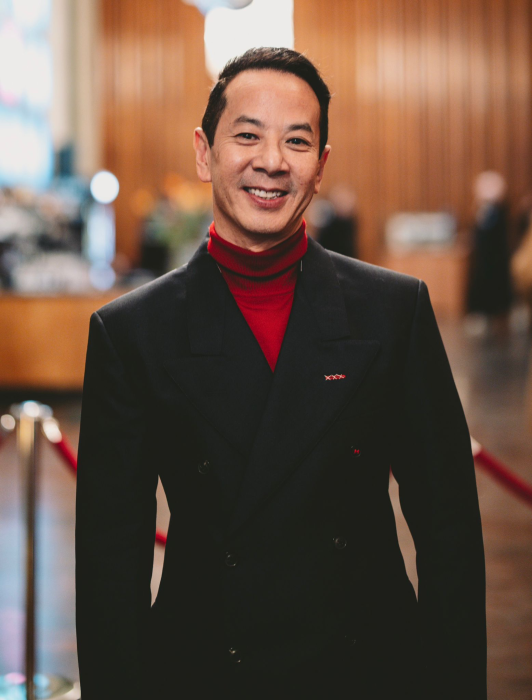Q&A: ‘All Shall Be Well’ director Ray Yeung explores LGBTQ inheritance rights
“All Shall Be Well” is out gay writer/director Ray Yeung’s poignant, touching drama about LGBT inheritance rights in Hong Kong. Lesbian couple Pat (Lin-Lin Li) and Angie (Patra Au) have been together for decades. While they are accepted by Pat’s extended family — her brother, Shing Wu (Tai-Bo), his wife, Mei Shum (So-Ying Hui), and … Read More

“All Shall Be Well” is out gay writer/director Ray Yeung’s poignant, touching drama about LGBT inheritance rights in Hong Kong.
Lesbian couple Pat (Lin-Lin Li) and Angie (Patra Au) have been together for decades. While they are accepted by Pat’s extended family — her brother, Shing Wu (Tai-Bo), his wife, Mei Shum (So-Ying Hui), and their adult children, Victor (Chung-Hang Leung) and Fanny (Fish Liew) — all that changes after Pat suddenly and unexpectedly dies. Moreover, because Pat had no official will, Shing Wu assumes control, making the funeral arrangements and handling Pat’s assets, ignoring what Angie claims were Pat’s wishes.
This situation only magnifies Angie’s loss, and “All Shall Be Well” is heartbreaking as it lets viewers feel empathy for Angie. Patra Au delivers a beautifully calibrated performance as the bereft Angie. She is silent and stoic, palpably expressing her grief and loneliness.
In a recent interview, Yeung spoke with Gay City News about “All Shall Be Well.”

What prompted you to explore inheritance issues of same-sex couples? How prominent are situations like the one Angie faces?
The story came about in 2020. I was in Hong Kong, and I went to a talk about the Hong Kong LGBTQ inheritance rights. The speaker quoted three cases of same-sex couples who have been together for many years and were open to family members. But after one partner passed away, suddenly the relationship changed overnight. In one case, family members moved into the apartment and changed the lock. There were horrifying stories. I interviewed some of them, and thought it was interesting to explore the lack of rights for the LGBT community in Hong Kong, but also what is the meaning of family? Is it someone who is blood related, or someone who has been with you for many years and supports you, but actually has no legal rights?
What can you say about creating the dynamic between Angie and Pat?
When I wrote the story, I just wanted to show a couple who have been together many years. How do I make the audience understand they have been together for a long time and are very comfortable with each other? Their passion is not a big romance anymore, but about the little things they do and understand about each other.
This is your second film, after “Twilight’s Kiss,” about queer seniors. Was that deliberate?
After “Twilight’s Kiss,” I wasn’t thinking of doing a female version of that film, or another story about the aging [queer] community. But because of the talk I went to, and meeting those women, and hearing their stories, I decided to write this script. Because it deals with same-sex couples who have been together over a long time, their age has to be over 50. I didn’t think I had to write another story about the aging LGBT community, but I am glad I did it, because when you look around, there aren’t that many LGBT movies regarding this age group, male or female.
What about the way Pat’s family is portrayed? They are very accepting of Pat and Angie’s generosity — but are largely ungenerous after Pat dies.
That’s very realistic, unfortunately. 80% of the cases I interviewed, the situations were like that. In reality, it was homophobia. They were pretending to be accepting for all those years because their sister or brother was the partner. But that acceptance can be taken away very quickly. When money is involved, it gives them even more [incentive] to be like this because they can find a reason to tell themselves that this is the right thing to do because legally the relationship is not binding in any way. But also morally, the society does not accept [homosexuality], so it makes sense for me to kick you out of this apartment because your relationship is not acceptable.
In the film, I made the family members not as horrible as some of the interview cases. I give them reason for why they behave the way they do. I did that because I felt if I made them outright evil, it would be watching victims and villains and the audience may not identify as villains because they would think, “I am not as horrible as these people” and watch it in a very detached way. I wanted the audience to be able to empathize with the family members and through that, ask themselves, “If I had this need, would I really do this to this woman, even though I know this is my aunt’s partner and they have been together for many years and contributed to this apartment? With the law on my side, would I let her stay there?”
What can you say about the patriarchal hierarchy depicted in the film, which influences a burial to who owns the apartment Angie and Pat shared?
The society, morally, does not accept LGBT relationships. But that is supported by customs and traditional rituals which are catered for a patriarchal society. The male is important. They might accept a woman in this ritual, but they are less important, and they do not address LGBT rights. I wanted to feature that. In Hong Kong and the Chinese community, with events like weddings or traditional festivals, or funerals, no matter how modern we are, we all fall back into rituals and traditional ways of doing things without any logic and sense. When someone dies, if you want to do this burial, in this method, you have to go through these exact steps, and they are catered for the male head figures of the family. If you are in a LGBT relationship, automatically, you are [an] outsider. There is not a word or title for you other than “best friend” or “sister.” You are at the bottom. In Hong Kong, they love to use the words ‘descendant.’ Whenever there are any debates about LGBT rights, they always bring up the children and “corrupting the child.” The welfare of next generation is always the argument.
Your film is very quiet and claustrophobic. Can you talk about the use of silence and space in creating emotion and telling this story?
We didn’t want to overscore it. We tried putting music in, but we felt it took away from the pressure we were building. We didn’t want the audience to feel relief. We wanted all the pressure to cook Angie; everything is happening to her in a very cruel way. The violence is quiet and understated, but just as cruel — what they say or do not say, or how they do not honor her. The lack of acknowledgement of her makes it more powerful.
How has your film been received in Hong Kong? Does “All Shall Be Well” have the potential to enact change?
We want audience to come and watch the film and know it is not just about legal rights and the LGBT community; it affects everyone. The LGBT community doesn’t want more rights, we just want basic equal rights like everyone else. I hope the film is a softer way of spreading the ideas about why a same sex relationship is important be recognized legally.
“All Shall Be Well” | Directed by Ray Yeung | Opening September 20 at Film Forum | Distributed by Strand Releasing

 Mark
Mark 





